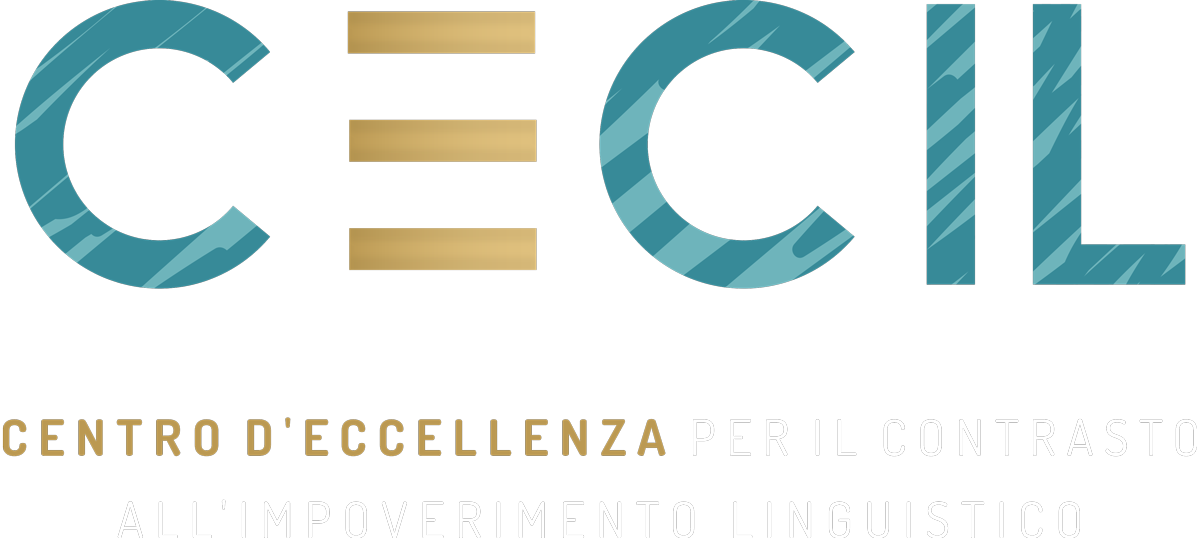Visiting Fellows
News
Call for application Visiting Fellow 2025
The Department of Philology, Literature, and Linguistics announced a selection based on qualifications and research project for the academic year 2025-2026. Deadline: July 5, 2025 at 12:00 a.m. (CET).
With us in 2025
Dorota Kozakiewicz-Kłosowska (University of Warsaw), from 12th April to 17th May

🇮🇹 Dorota Kozakiewicz-Kłosowska, dottore di ricerca in Linguistica, è responsabile della Sezione di Lingua Italiana alla Facoltà di Linguistica Applicata dell’Università di Varsavia e presiede la Commissione d’Esame di Lingua Italiana dell’Ateneo. Si occupa di concettualizzazione linguistica, gli esponenti lessicali della qualità della vita nei media, innovazioni linguistiche e linguistica contrastiva (italiano, polacco, inglese). È cofondatrice dei gruppi di ricerca internazionali TRANSIT (transfer culturale) e MICROFORMA (forme brevi) e direttrice responsabile della rivista bilingue Gazzetta Italia.
Durante il soggiorno come Visiting Fellow presso il Dipartimento ha svolto attività di ricerca e divulgazione legate al progetto Esplorare la linguistica contrastiva: uno studio sulle strutture del polacco e dell’italiano per un migliore uso pratico della competenza linguistica, dedicato alla linguistica contrastiva fra l’italiano e altre lingue, con l’obiettivo di favorirne un uso più consapevole in contesti didattici e comunicativi. Le attività didattiche prevedevano incontri con studenti di corsi triennali e magistrali, durante i quali si è riflettuto sul valore dell’analisi contrastiva e sulla riconsiderazione di alcune strutture linguistiche spesso classificate come “errori” nei manuali per apprendenti di lingua italiana a stranieri. L’approccio ha mirato a valorizzare tali fenomeni come strumenti di riflessione linguistica e metalinguistica, con un’attenzione particolare alle somiglianze e differenze tra le lingue europee. Sono stati inoltre organizzati seminari per studenti di area slavistica, dedicati all’analisi comparativa dell’aspetto verbale in polacco e in italiano e alle strategie di traduzione di strutture sintattiche marcate. L’attività di ricerca ha incluso la progettazione, sperimentazione e diffusione di un questionario destinato a studenti e docenti universitari, finalizzato a raccogliere dati sull’interferenza linguistica.
🇬🇧 Dorota Kozakiewicz-Kłosowska, PhD in Linguistics, is Head of the Italian Language Section at the Faculty of Applied Linguistics of the University of Warsaw and chairs the University Examination Board for Italian Language. Her research interests include linguistic conceptualization, lexical means of quality of life in the media, linguistic innovation, and contrastive linguistics (Italian, Polish, English). She is co-founder of the international research groups TRANSIT (cultural transfer) and MICROFORMA (short forms), and editor-in-chief of the bilingual journal Gazzetta Italia.
During her stay as a Visiting Fellow at the Department, she carried out research and outreach activities related to the project Exploring Contrastive Linguistics: A Study of Polish and Italian Structures for a More Effective Practical Use of Language Competence, devoted to contrastive linguistics between Italian and other languages, with the aim of promoting a more conscious use of linguistic competence in educational and communicative contexts. The teaching activities included meetings with undergraduate and graduate students, focused on the value of contrastive analysis and on re-evaluating linguistic structures often labeled as “errors” in Italian language textbooks for foreign learners. This approach aimed to highlight such phenomena as tools for linguistic and metalinguistic reflection, with particular attention to similarities and differences among European languages. Additional seminars were held for students in Slavic Studies, dedicated to the comparative analysis of verbal aspect in Polish and Italian and to translation strategies for marked syntactic structures. The research activities also involved the design, testing, and dissemination of a questionnaire for university students and teachers, aimed at collecting data on linguistic interference.
Vera Alexander (University of Groningen), from 1st to 30th September

Dr Vera Alexander is Senior Lecturer/University Lecturer in European Literatures and Cultures: English at the University of Groningen (The Netherlands). She has research expertise in English and Anglophone Literatures and Cultures with a particular interest in human and more-than-human life writing, the environmental humanities, creative-critical writing, heterotopia, diaspora, and transculturality. She has published a monograph on migration and education in writings of the Indian Diaspora, several recent articles on garden life writings, and she recently co-edited a volume titled European Spaces of Conflict: Past, Present and Future.
Project: “Philology, meet the Environmental Humanities”
We are living in interesting times of rapid change and volatility. This has knock-on effects on our knowledge cultures, academic practices and scholarly discourses. Since the Enlightenment, western philologies have put human affairs at the centre of attention, often at the expense of more-than-human lives and spaces. In recent years, the environmental humanities have proposed ways of reimagining our relations to the natural world. Focusing on garden writings, this project looks at creative-critical opportunities offered by these circumstances, such as presented by the emergence of new dynamic vocabularies, discourses and methodologies that embrace relational perspectives. Gardens are sites of encounter with more-than-human agents. Being familiar spaces, often associated with recreation and enjoyment, they are sites where new concepts and vocabularies emerge. I will be working on an chapter on gardens and the imagination, analysing how visible and invisible more-than-human relationalities are framed in order to come to terms with present day emergences and emergencies.
I plan to engage in dialogue and collaboration with colleagues at the university of Pisa to discuss and compare ongoing changes in vocabulary, discourse, methodology and embodied knowledge practice in the humanities and philologies in the Netherlands and in Italy. I look forward to sharing my expertise in present day life writing and to learning from colleagues specialising in poetry and fiction to analyse recent literary works that reframe humans and the humanities in the current climate of change and embrace new avenues of analysis.
Giuseppe Pezzini (University of Oxford), from 9th January to 9th March
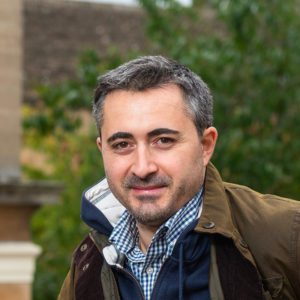
Giuseppe Pezzini is Tutor and Fellow at Corpus Christi College, Oxford, which he joined in 2021 after five enriching years at St Andrews (2016–2021) and research fellowships at Magdalen College, Oxford (2013–2015), and the Institute for Advanced Study in Princeton (2016). He worked as an Assistant Editor for the Oxford Dictionary of Medieval Latin (completed in 2013) and has published extensively on Latin language and literature, the philosophy of language, the reception of the Classics, and the theory of fiction, both ancient and modern. His scholarly contributions include three books (notably a monograph on the verb ‘to be’ in Latin, Oxford 2015), four edited volumes (including a major study of Early Latin language, co-edited with James N. Adams and Anna Chahoud, Cambridge 2023), and more than fifty peer-reviewed articles. He was awarded a British Academy Mid-Career Fellowship in 2019 and the Philip Leverhulme Prize in 2021.
A tool for improving Latin reading skills
The aim of his CECIL project is to address the increasing challenges faced by students in learning Latin by developing a tool that goes beyond both traditional grammatical methods and living language approaches, such as Ørberg’s method, while also incorporating aspects of both. The project adopts a primarily text-based methodology, focusing on enhancing students’ reading skills at both secondary school and university levels. It seeks to produce an anthology of original ancient texts, encompassing a range of synchronic and diachronic variations, and organised by grammatical and lexical difficulty.
Stefano Redaelli (University of Warsaw), from 7th January to 6th February
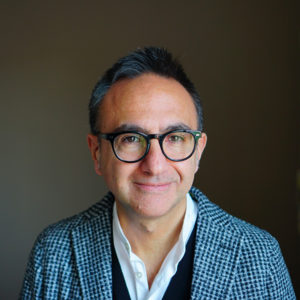
Stefano Redaelli is Associate Professor of Italian Literature at the Faculty of “Artes Liberales” at the University of Warsaw, Poland. From the University of Warsaw he got both his PhDs degree, in Physics and in Literature. His research focuses on the intersection between Literature, Medicine, Science and Spirituality. His book publications include: Esercizi di squilibrio. Per imparare a prendersi cura di sé e dell’altro (Città Nuova 2024), Psicopatografie. Il racconto della malattia mentale nella narrativa italiana del XXI secolo (Peter Lang, 2023), Critica e cura. La follia prima e dopo Basaglia (with Ivan Dimitrijević, Paolo Loffredo Editore, 2022), A 40 anni dalla legge Basaglia: la follia, tra immaginario letterario e realtà psichiatrica (DiG, 2020), Nel varco tra le due culture. Letteratura e scienza in Italia (Bulzoni, 2016). He also serves on the Scientific Committee of „Centro Studi Medical Humanities” of the University of Bologna.
Family Illness Narratives: il racconto della malattia dalla prospettiva dei familiari nella narrativa italiana contemporanea
As a CECIL Visiting Fellow, he aims at analyzing a corpus of contemporary Italian illness narratives where the narrator is not the patient, as it is most often the case, but a close family member. He will explore whether, and how, narrative models, myths and metaphors of illness shift into these accounts influencing the shaping of the language, with a particular focus on the case of Alzheimer’s disease.
With us in 2024
Giulia Dovico (PhD Cologne 2020-2021), from 23rd November to 22nd December
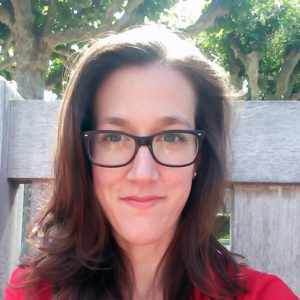
After her BA and MA in Classics in Padua (IT) and Dijon (FR), Giulia Dovico carried out her doctoral studies between Cologne (DE), Padua (IT), and Berkeley (USA). For her PhD, she produced a new critical edition of scholia (i.e. ancient marginal exegetical commentaries) to Euripides’ Medea, which she is now reworking for publication. She held a position at the Cluster of Excellence “Understanding Written Artefacts” in Hamburg (DE) and was awarded, among others, a grant from the Fondation Hardt (CH) and a grant from the International Society for the History of Rhetoric. From January 2025, she will be working as a DFG-Walter Benjamin Fellow at the universities of Groningen and Leiden (NE), inquiring into the role(s) of figurative language in ancient literary-critical writings in relation to the varying degrees of literariness and technicality they display. Combining literary and textual critical approaches, her research mainly focuses on the transmission of Aristophanic comedies, ancient Greek scholarship (especially Greek scholiography to Euripides), and ancient literary criticism.
How to Write Good Greek. Language Correctness and Classicism in Ancient Scholarship
At CECIL, she sets out to analyse how literary tradition and everyday usage contributed to the definition of language correctness in a context like the ancient Greek one in which the literary tradition, while being perceived and presented as an authoritative model, was very much detached from everyday usage of both educated and uneducated people. In those cases in which the two criteria were in contrast, which one—to the ancient grammarian’s mind—was more likely to unveil the correct linguistic form?
Etta Madden (Missouri State University), from 7th October to 10th December

Writing about Literature: A Pragmatic Approach (Teaching)
Biography as a Genre: A 19th-Century Case Study (Research)
Etta Madden is Professor of English, Emerita, and formerly Clif & Gail Smart Professor at Missouri State University, with an emphasis on American literature. Her research and teaching have focused on US writers in Italy, American communal groups and utopian literature, and recovering lesser-known US women writers. She has been a visiting scholar at the American Academy in Rome, a Fulbright Senior Lecturer in American Literature at the Università degli Studi di Catania, and a recipient of Mellon research fellowships at the New York Public Library and the Library Company of Philadelphia.
Her books include Engaging Italy: American Women’s Utopian Visions and Transnational Networks (SUNY Press 2022), Eating in Eden: Food & American Utopias (U Nebraska 2006) and Bodies of Life: Shaker Literature and Literacies (Greenwood 1998). She is now researching and writing a biography of translator and author Caroline Crane Marsh, wife of the US Minister to Italy (1861-1882). Recent essays related to this project, on Marsh’s translations and her involvement in her husband’s groundbreaking environmental study, Man and Nature (1864), have appeared in Transatlantica: American Studies Journal and Rivista italiana di filosofia politica.
As a CECIL Visiting Fellow, she is delivering two series of seminars for advanced students, first on the topic of Pulitzer-Prize winning author Jhumpa Lahiri’s Roman Stories within the context of short fiction and translation and second, on composition theory for writing about literary research. Additionally, she continues her research on Caroline Crane Marsh’s biography, with an emphasis on her time in Tuscany.
Marco Santini (University of Oxford), from 1st to 30th September
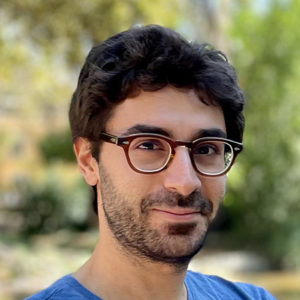
Percezioni di multilinguismo: lingue e potere politico nel Mediterraneo Orientale antico (I millennio a.C.)
Marco Santini is Fellow by Examination in Ancient History at Magdalen College, University of Oxford. He earned a BA and MA in Classics and Ancient History from the Scuola Normale Superiore and the University of Pisa, and a PhD in Ancient History from Princeton University. During his doctoral studies, he participated in several exchange programs with the University of Pennsylvania, the Institute for the Study of the Ancient World of New York University, and the Ludwig-Maximilians-Universität of Munich. After completing his doctorate, he taught at Princeton as Postgraduate Research Associate and Lecturer in the Department of Classics. He has recently been appointed Lecturer in Ancient History at the University of Edinburgh, where he will begin to work in 2025.
He has published articles on the interplay between language and political power in the Iron Age Near East, on the Anatolian roots of the concept of tyranny as well as on ethnicity and multiculturalism in Classical and Hellenistic Caria, with a special focus on Halikarnassos. He is currently working on a monograph which argues for the existence of shared patterns in political thought and practice across Greece, Anatolia, and the Levant during the Iron Age (ca. 1200–600 BC).
As a CECIL Visiting Fellow, he has delivered a series of seminars for advanced students on the topic Percezioni di multilinguismo: lingue e potere politico nel Mediterraneo Orientale antico (I millennio a.C.). Themes treated included the use of language in conceptualizations of ethnicity, cross-cultural transmission of terminology of power, multilingualism and multiculturalism among communities of mercenaries.
